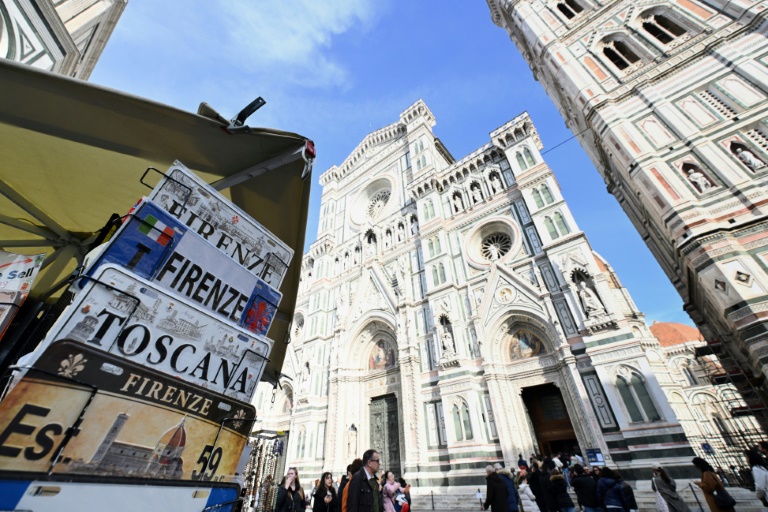Photos by Alberto Pizzoli. Video by Giovanni Grizzi
Goldsmith Tommaso Pistelli has been evicted from his historic Florence workshop to make way for a luxury hotel, the umpteenth victim of a mass attack that tourism critics say is devastating the Italian city.
Calls intensified last month for urgent measures to protect the city centre, a UNESCO site, after the museum director said that “hit-and-run” tourism had turned Florence into a “whore”.
About 1.5 million tourists flocked to the city last summer, up 6.6% from the previous year, while a growing number of independent shops and apartments are being converted into fast-food restaurants and holiday rentals.
“We've been open since 1908,” said Pestelli, whose father, grandfather and great-grandfather were jewelers before him. “If you take away us, and many others like us, you take away part of the soul of the city.”
Advertisement – Scroll to continue
Pestelli, 55, was able to find another small workshop nearby, but says many of his fellow craftsmen were not so lucky.
Official figures show that the average cost of monthly residential rentals jumped by 42% between 2016 and 2023, while the number of apartments listed on the Airbnb website jumped from around 6,000 to nearly 15,000.
Even in February, queues of tourists snake around the building in the Duomo and crowd around Michelangelo's David.
Advertisement – Scroll to continue
With locals forced out and traditional shops disappearing, “Florence became an empty box,” Pestelli said.
The decline in the number of long-term residents has killed off neighborhoods and led to more crimes, such as attempted break-ins, said Elena Bellini, 47, who sells work by local artists.
“Florence is dying!” Read a notice in a jeweler's window saying the city has been “sold” to big business.
Advertisement – Scroll to continue
The Tuscan capital is not alone. Venice and other top destinations like Cinque Terre in northwest Italy have also seen locals move away due to astronomical rents, overcrowded locations and endless souvenir shops.
While Venice is experimenting with a ticket system, charging day visitors an entrance fee in peak seasons, Florence's centre-left city council has launched a campaign to lure tourists away from the city centre.
“People are increasingly looking for experience-based itineraries, so we have to promote… other points of historical, artistic, natural and gastronomic interest,” the city's deputy mayor, Alicia Bettini, told AFP.
Advertisement – Scroll to continue
The number of visitors to the surrounding villages, castles and monasteries rose by 4.5 per cent in January, while the number of hikers taking the Path of the Gods across the Apennines to Bologna rose by 22 per cent last year.
The council also tried to free up homes for local residents and prevent rents from rising further by banning new short-term private holiday rentals in the historic centre.
The measure, adopted in October, includes tax breaks for landlords if they return to regular leases.
Despite the ban, about ten craftsmen are being evacuated from workshops in a building near Ponte Vecchio, amid plans to convert it to tourism.
Advertisement – Scroll to continue
“The tradition of goldsmithing in Florence is rapidly collapsing,” Pestelli said.
A few streets away, Gabriele Maselli, president of the Florence Historical Society, paints a gold picture frame with his own hands, and rows of brightly colored pots and powders line the shelves behind him.
There is a large cross leaning against one of the walls, while nearby a restorer is repairing the surface of the damaged painting.
“People come to Florence to buy high-quality, painstakingly handcrafted items,” said 58-year-old Maselli.
“If a company is forced to close, it affects the entire production chain. The whole world shuts down, disappears forever.”

